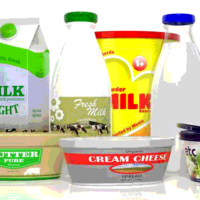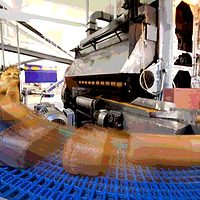The purpose of allergen disclaimers is for the benefit and protection of consumers. Unfortunately, some manufacturers and suppliers have gone beyond the intent and morphed it into a tool for their own cost-reduction benefits. We have run across some suppliers that are using the label, “food manufactured on equipment that also manufactures foods that contain [allergen,]” when they are not running any allergen-identified production. In other words, by using this warning label on a product that does not contain allergens, manufacturers can limit accountability and provide cover for inadequate cleaning and/or poorly followed cross-contamination prevention programs. Sanitizing procedures that are acceptable for hygiene purposes may not be sufficient to remove all allergens, and additional steps are necessary. These necessary steps sometimes include rigorous cleaning practices that can go as far as the dismantling of equipment, analytical testing to verify that cleaning practices were effective or separate equipment for allergen and non-allergen product lines—all costly steps that could be dodged by a simple allergen disclaimer. Another thing to keep in mind is this type of statement is voluntary, not required by the U.S. Food and Drug Administration (FDA).
Until FDA sets clear standards, one of the only ways to avoid manufacturers or suppliers who utilize disclaimers for their own advantageous reasons is to look for those with legitimate certifications. For instance, a NSF Gluten-Free-certified company must undergo a scrupulous certification process that includes science-based annual inspections, ingredient verification, random product testing and announced audits. Companies with such certifications invest both the time and money to ensure their clients their intentions are correct. They take the extra step, not the easy one.
Although most companies do have genuine motivations for placing allergen disclaimers on their products, the few instill doubt especially in consumers. As they become more aware of their health and the foods that contribute to it, the more they are taking notice of labels. Consumers are already questioning the meaning of allergen disclaimers and which foods they are actually able to consume. If allergen disclaimer use continues on this path, consumers will no longer benefit from them. Some go as far as saying individuals with food allergies will eventually have difficulty finding foods they can consume.
George Pontiakos is president and CEO of BI Nutraceuticals. He oversees all aspects of operations for BI Nutraceuticals and the Zuellig Group Nutrition and Ingredients based in China. He holds a bachelor’s degree in business management from Farleigh Dickinson University in New Jersey.
>




